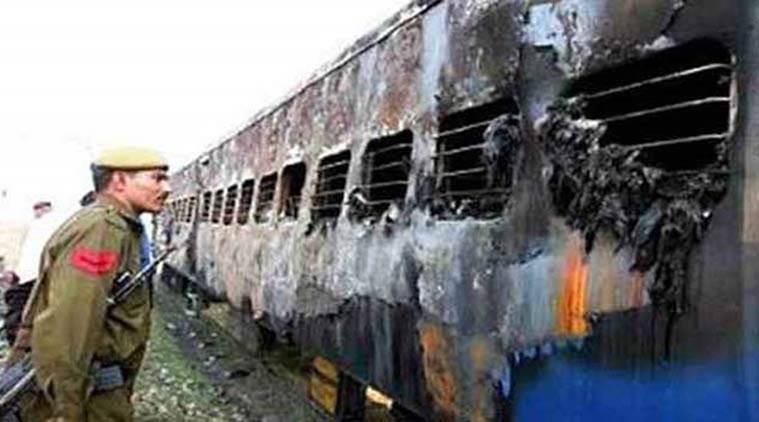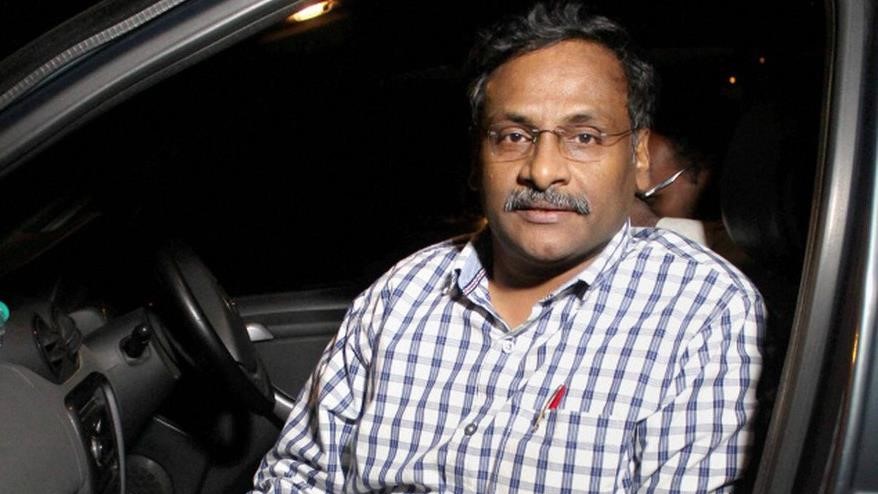NOVANEWS

By Sajjad Shaukat
On the midnight of 18-19 February 2007, India-Pakistan Samjhota Express train was bombed in
which 68 Pakistani nationals were killed. A Hindu extremist leader Swami Aseemanand, a leader
of Rashtriya Swayamsevak Sangh has confessed that he was involved in several bombings
incidents. He also claimed to have been a part of the incident.
In fact, ideology of Hindutva (Hindu nationalism) prevails in every field at the cost of other
minority groups. It is even supported by Indian defense forces secretly. This could be judged
from the incident, when on April 6, 2008 in the house of Bajrang Dal fundamentalists in Nanded,
a bomb went off. The investigation proved that these militants were found in the bomb-making
and attack on a mosque in Parbhani in 2003. Anti-Terrorism Squad (ATS) of the Maharashtra
arrested a serving Lt. Col. Srikant Purohit along with other army officials, indicating that they
were helping in training the Hindu terrorists, providing them with the military-grade explosive
RDX, used in the Malegaon bombings and terrorist attacks in other Indian cities. ATS further
disclosed that Lt. Col. Purohit confessed that in 2007, he was involved in bombing of Samjhota
express, which burnt alive 70 Pakistanis.
India’s National Investigation Agency (NIA) was convinced that Sadhu Swami Aseemanand, a
Hindu right-wing leader was directly involved in the Samjhota Express blast. Sources in NIA
further pointed out that besides Lt. Col. Purohit, other Indian army officials were also behind that
train-bombing. In this regard, a court in Panchkula, Haryana has recorded Aseemanand’s
statement which confirmed the NIA inquiry.
Aseemanand’s statement in the Samjhota Express blast case was recorded under Section 164 of
the Criminal Procedure Code before a magistrate. His earlier admission was recorded in the
Mecca Masjid case, which was being probed by the Central Bureau of Investigation (CBI).
Sadhu Aseemanand stuck to his confession that Hindutva radicals were behind the bomb attack
on the Samjhota Express. Aseemanand, Aka Naba and Kumar Sarkar, named absconding
Hindutva militants—Ramji Kaisangra and Sandeep Dange as the key plotters in that terror
attack.
Sources of the NIA also disclosed that the confession in connection with the Samjhota Express
blast practically rules out the involvement of other groups.
In the Samjhota Express case, the probe team has found that the bomb used in the train waskept
in a suitcase that was bought from a shop of Indore’s Kothari Market. The suitcase had cloth
covers stitched by an Indian local tailor. The NIA was now trying to get details of those who
bought the suitcase and covers.
It is notable that Dr. J C Batra, who is a senior advocate at the Supreme Court of India, was
asked to give opinion on Aseemanand’s confession. He appeared very defensive and as usual
started accusing Pakistan’s its primary intelligence agency ISI—its so-called history for such
activities, alleging that even this could be an ISI plot. He further said that Swami’s statement
does not have much legal value as circumstantial evidence is also needed, while adding that RSS
is being wrongly implicated and there could be others involved who are not being exposed. In
this regard, a Pakistani parliamentarian, Mr. Mian Abdul Sattar, parliamentary secretary for
planning and development, who was accompanying him, later stated that that he was told by Mr
JC Batra that the Indian Army was involved in this case and there “are efforts to shield it from
getting exposed”.
Swami Aseemanand also confessed in the court that several RSS preachers and Sang activists
were directly involved in planning, financing and executing Malegaon, Samjhauta Express,
Ajmer and Mecca Masjid blasts. He stated that various leaders of Hindu communal organizations
including Bajrang Dal, Vishwa Hindu Parishad, Abhinav Bharat, Jai Vande Matram and Vanvasi
Kalyan Ashram were also behind these blasts.
It is mentionable that in various tapes, LT. Col Purohit said, “We are all on the same plane,
Hindu Rashtra (Nation)”. He even claimed that Gen. J J Singh is “with us”. (Former Singh was
Army Chief till Sept. 2007). Significantly, Purohit mentioned that “one of our own captain had
visited Israel”, and demanded “continuous supply of arms, training, an office with a saffron flag
in Tel Aviv, political asylum and support for our cause of a Hindu Nation in the UN.” The
Israelis, he added, gave “a very positive response.”
In this context, exposing the nexus between Bhartia Janta Party (BJP) and the Rashtriya
Swayamsevak Sangh (RSS), the then Indian Home Minister Sushil Kumar Shinde disclosed on
January 20, 2013 that organized training camps run by the fundamentalist parties, RSS and BJP
were promoting Hindu Terrorism. He also explained that these extremist parties were behind the
Samjhauta Express, Meccca Masjid and Malegaon blasts. He added, “We will have to think
about it (Saffron terrorism) seriously…Hindu extremist parties BJP and RSS were involved
many times in Hindu Muslim violence in India, especially Gujarat and Babri masjid incident.”
The then India’s External Affairs Minister Salman Khurshid endorsed Shinde’s statement, saying
that it was based on facts. Meanwhile, Indian Home Secretary R K Singh revealed that during
investigation the government had found ten names of the Hindu extremists, associated with RSS,
who were involved in these terror attacks including Ajmer Sharif.
Similarly on July 19, 2013, the Indian ex-investigating officer Satish Verma disclosed that terror-
attacks in Mumbai in November 26, 2008 and assault on Indian Parliament in January 12, 2001
were carried out by the Indian government to strengthen anti-terrorism laws.
While, India has always accused Pakistan’s ISI of these acts of terrorism, but it is quite silent
over Hindutva-terror which has obtained a new face, under the fundamentalist Indian Prime
Minister Narendra Modi, as Indian RAW, country’s high officials and fundamentalist parties
have co-relationship.
Nevertheless, despite the confessions of Swami Aseemanand, instead of taking action against the
culprits of the Samjhota Express explosion, the Supreme Court of India accepted the bail of
Swami Aseemanand after the covert interference of the Modi-led authorities who changed the
investigations in this respect in order to weaken the case.
Sajjad Shaukat writes on international affairs and is author of the book: US vs Islamic Militants,
Invisible Balance of Power: Dangerous Shift in International Relations



